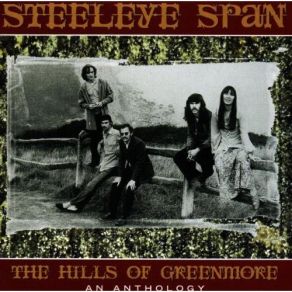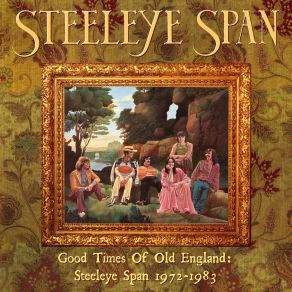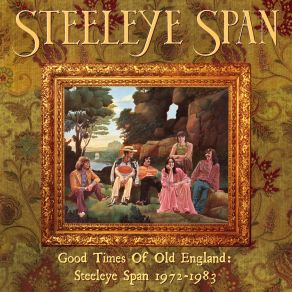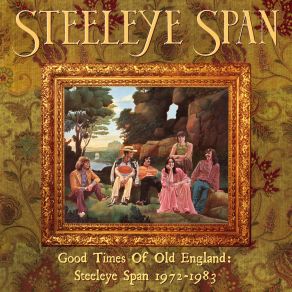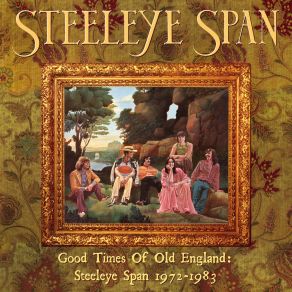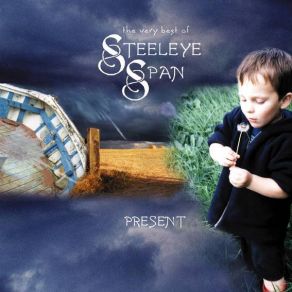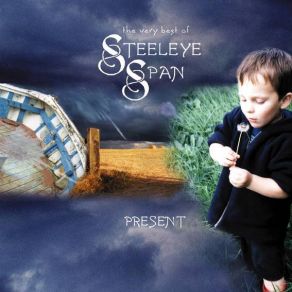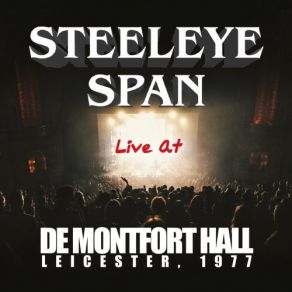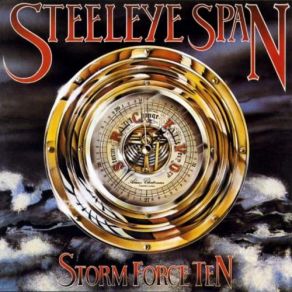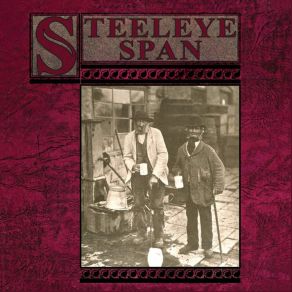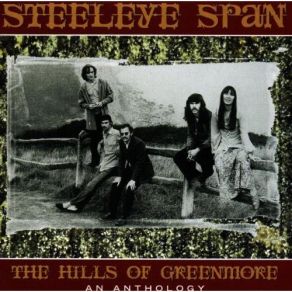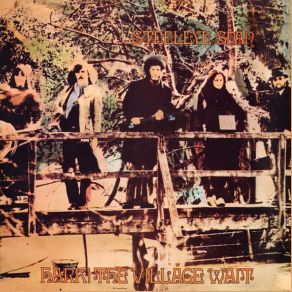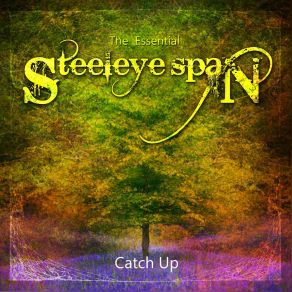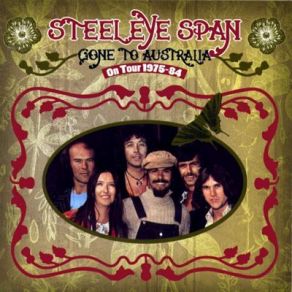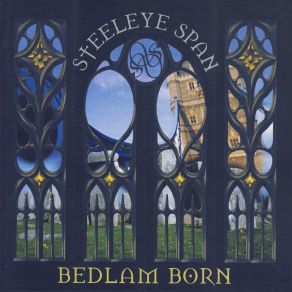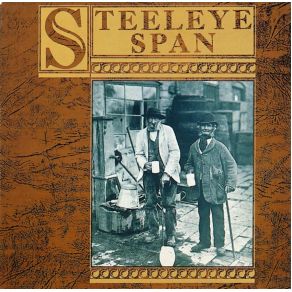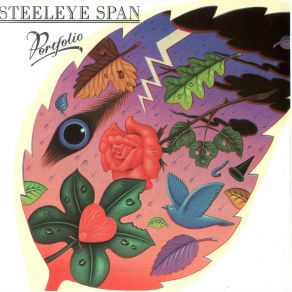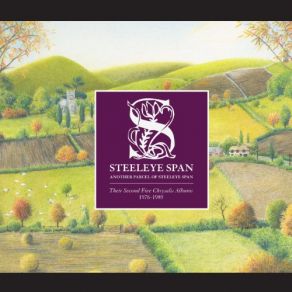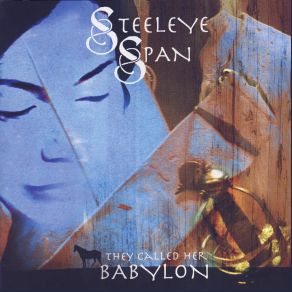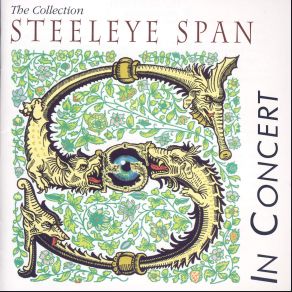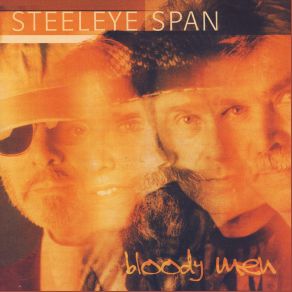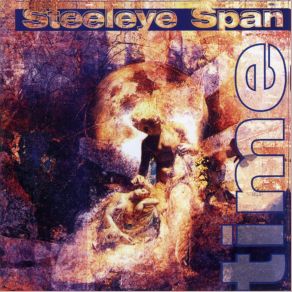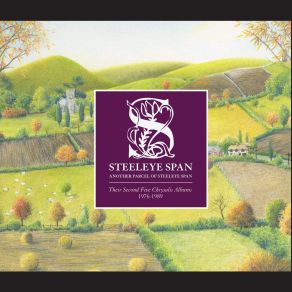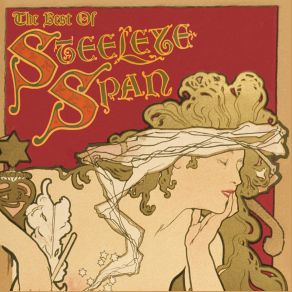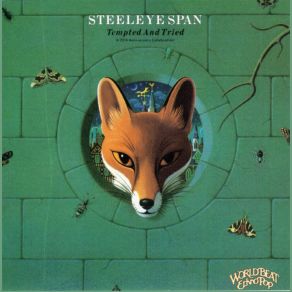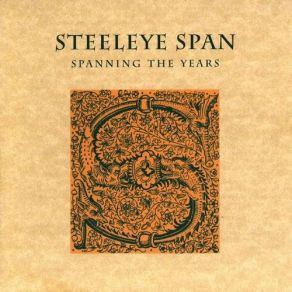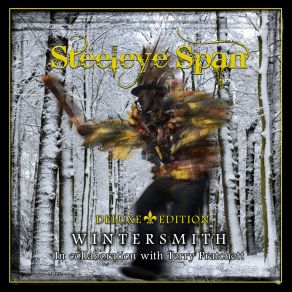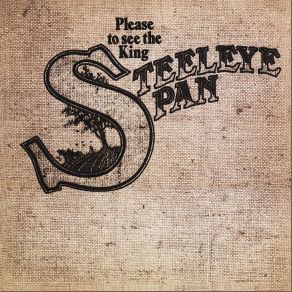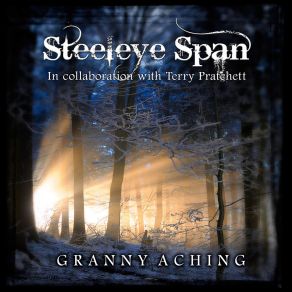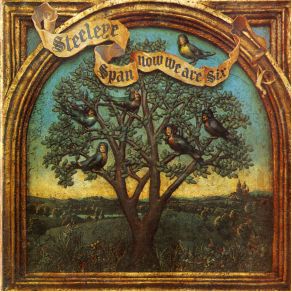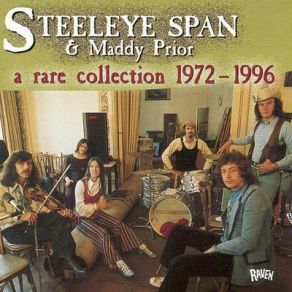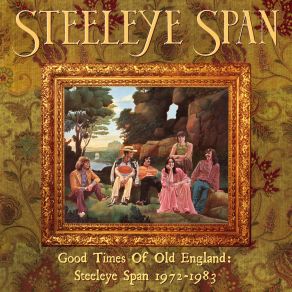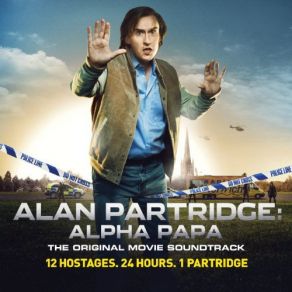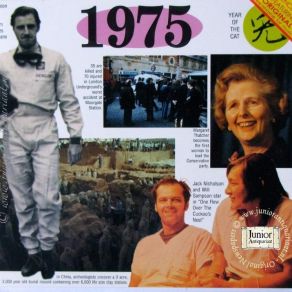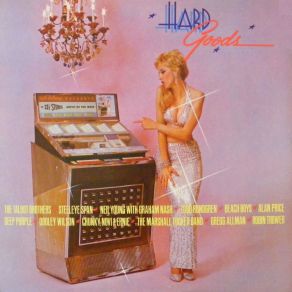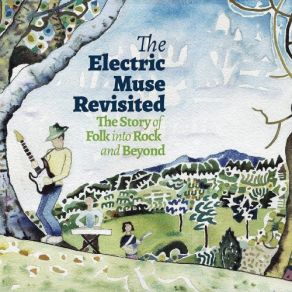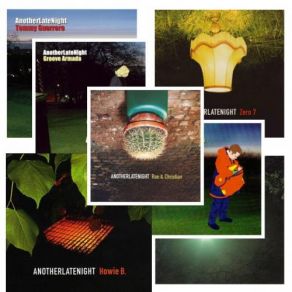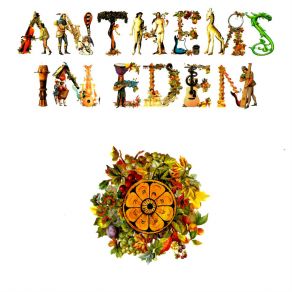Steeleye Span
Wikimp3 information about the music of Steeleye Span. On our website we have 70 albums and 41 collections of artist Steeleye Span. You can find useful information and download songs of this artist. We also know that Steeleye Span represents Songwriter/Lyricist genres.
Biography
[Edit]Aside from Fairport Convention, Steeleye Span was the most successful and enduring British folk-rock band. The parallels between the bands are numerous: both updated traditional British folk material with rock arrangements, both featured an excellent female lead singer (Sandy Denny for Fairport, Maddy Prior for Steeleye Span), both frequently employed multi-part harmonies, and both mixed original and traditional songs. Although Fairport was more innovative in its early days, Steeleye Span was arguably the more interesting band after 1970, when personnel changes had gutted the original Fairport lineup. Steeleye Span, too, would undergo numerous personnel changes even at their peak. Prior was the constant factor that gave the group something of a recognizable identity at all phases of their journey.
One thing that differentiated Steeleye Span from their counterparts was that Fairport came to traditional folk from a rock background, whereas Steeleye traveled in the opposite direction. The original lineup, formed around the beginning of 1970, included guitarist Terry Wood, who had been in a traditional Irish folk group called Sweeney's Men (with Andy Irvine). The supple-voiced Prior had been in a folk duo with guitarist Tim Hart. The impetus for Steeleye Span's formation, ironically, came from ex-Fairport Convention bassist Ashley Hutchings. Hutchings wanted to keep pursuing the traditional folk direction ploughed by Fairport on the 1969 album Liege and Lief, and left Fairport to joined forces with Prior, Hart, Terry Woods, and Gay Woods (Terry's wife) to anchor the first incarnation of Steeleye Span.
This lineup only lasted for one album, with the Woods leaving for Doctor Strangely Strange; Terry Woods would eventually resurface with the Pogues in the 1980s. He was replaced by Martin Carthy, one of the most respected guitarists on the English folk circuit. Carthy's abdication of acoustic folk for electric (if drum-less) folk-rock apparently caused much consternation within the purist English folk community, a kerfuffle that is hard to understand (at least from an American perspective), given that Dylan had already successfully fought that battle in the mid-'60s. While Steeleye Span played folk music, they had no aversion to playing it loud, and this version of the band proved that it was possible to create an energetic ruckus without a drummer.
Both Hutchings and Carthy, by far the most famous members of the group, left around the end of 1971. This sort of defection would have crippled most acts. Yet Steeleye Span not only persevered, but entered their most commercially successful phase. Tim Hart was once quoted as saying that the group wanted to "put traditional music back into current musical language — to make folk music less esoteric." They were aided in doing so by new bassist Rick Kemp, who became Maddy Prior's husband. In 1973, they finally added drums to the band, becoming a true folk-rock act after years of ramping up.
One asset to Steeleye Span's unusual durability (in the face of the revolving door of players) was their open-minded approach to contemporary influences. They covered oldies (and well) by Buddy Holly, the Four Seasons, and Phil Spector. David Bowie and Peter Sellers made cameo appearances on their albums in the mid-'70s. They occasionally acted in plays (in which they also musically performed as a group). They covered Brecht-Weill songs. Some of their work was produced by Mike Batt, whose primary previous credentials was as the mastermind of the Wombles, a British kiddie rock group.
Steeleye Span finally had a British chart hit in 1974 with the Christmas song "Gaudette." In 1975, they had a huge (by folk-rock standards) smash with "All Around My Hat," which reached the U.K. Top Five. In the United States, they (like Fairport) were consigned to cult status. They picked up some airplay on open-minded FM stations, but got their widest Stateside exposure as an opening act during a Jethro Tull tour. The onslaught of punk and new wave weakened any prospects for continued chart success at home. In 1977, they took on more traditional elements with the return of Martin Carthy, and the addition of John Kirkpatrick on accordion, but they finally split the following year.
Not for good, however. In a final parallel with Fairport Convention, they decided to periodically reunite while pursuing their own projects. Other studio albums appeared, and the group sometimes performed at festivals or even toured, though with enough irregularity to make it confusing to determine whether they were "together" again. A devoted following makes it possible for them to be received warmly by cult audiences whenever the mood suits them to play live again. Carthy has enjoyed the most notable solo career of the Steeleye Span alumni, continuing to command great respect among British folk listeners. Maddy Prior's most notable outside endeavor has been her duo recordings with fellow British folk singer June Tabor. Tim Hart released a handful of notable solo outings as well, before retiring to La Gomera, in the Canary Islands, where he passed away after a long battle with cancer in 2009.
Title: The Lark in Morning: The Early Years
Artist: Steeleye Span
Genre: Rock, World Music, Songwriter/Lyricist
Title: Good Times Of Old England: Steeleye Span 1972-1983 (CD8)
Artist: Steeleye Span
Genre: Folk Rock
Title: Good Times Of Old England: Steeleye Span 1972-1983 (CD12)
Artist: Steeleye Span
Genre: Folk Rock
Title: Good Times Of Old England: Steeleye Span 1972-1983 (CD9)
Artist: Steeleye Span
Genre: Folk Rock
Title: Good Times Of Old England: Steeleye Span 1972-1983 (CD1)
Artist: Steeleye Span
Genre: Folk Rock
Title: Good Times Of Old England: Steeleye Span 1972-1983 (CD4)
Artist: Steeleye Span
Genre: Folk Rock
Title: Good Times Of Old England: Steeleye Span 1972-1983 (CD3)
Artist: Steeleye Span
Genre: Folk Rock
Title: Good Times Of Old England: Steeleye Span 1972-1983 (CD7)
Artist: Steeleye Span
Genre: Folk Rock
Title: Good Times Of Old England: Steeleye Span 1972-1983 (CD5)
Artist: Steeleye Span
Genre: Folk Rock
Title: Good Times Of Old England: Steeleye Span 1972-1983 (CD011)
Artist: Steeleye Span, The London
Genre: Folk Rock
Title: Live At De Montfort Hall, Leicester 1977
Artist: Steeleye Span
Genre: World Music, Country, Folk
Title: Cogs Wheels and Lovers
Artist: Steeleye Span
Genre: Rock, Folk Rock, World Music, Songwriter/Lyricist
Title: The Lark In Morning - The Early Years
Artist: Steeleye Span
Genre: Rock, Folk Rock, World Music, Songwriter/Lyricist, Psychedelic
Title: Ten Man Mop or Mr Reservoir Butler Rides Again
Artist: Steeleye Span
Genre: Rock, Folk Rock, World Music, Songwriter/Lyricist, Psychedelic
Title: Hark! The Village Wait
Artist: Steeleye Span
Genre: Rock, Folk Rock, World Music, Songwriter/Lyricist, Psychedelic
Title: The Journey
Artist: Steeleye Span
Genre: Rock, Folk Rock, World Music, Songwriter/Lyricist, Psychedelic
Title: The Essential Steeleye Span: Catch Up
Artist: Steeleye Span
Genre: Rock, Folk Rock, World Music, Songwriter/Lyricist
Title: Live at a Distance
Artist: Steeleye Span
Genre: Rock, Folk Rock, World Music, Songwriter/Lyricist, Psychedelic
Title: Bedlam Born
Artist: Steeleye Span
Genre: Rock, Folk Rock, World Music, Songwriter/Lyricist, Psychedelic
Title: Ten Man Mop Or Mr. Resevoir Butler Rides Again
Artist: Steeleye Span
Genre: Rock, Folk Rock, World Music, Songwriter/Lyricist, Psychedelic
Title: Somewhere Along the Road - Single
Artist: Steeleye Span
Genre: Folk Rock, Songwriter/Lyricist
Title: Portfolio
Artist: Steeleye Span
Genre: Rock, Folk Rock, World Music, Songwriter/Lyricist, Psychedelic
Title: Tonight's the Night...Live
Artist: Steeleye Span
Genre: Rock, Folk Rock, World Music, Songwriter/Lyricist, Psychedelic
Title: They Called Her Babylon
Artist: Steeleye Span
Genre: Rock, Folk Rock, World Music, Songwriter/Lyricist
Title: The Collection - Steeleye Span in Concert
Artist: Steeleye Span
Genre: Folk Rock, World Music, Songwriter/Lyricist
Title: Bloody Men
Artist: Steeleye Span
Genre: Rock, Folk Rock, World Music, Songwriter/Lyricist, Psychedelic
Title: Time
Artist: Steeleye Span
Genre: Rock, Folk Rock, World Music, Songwriter/Lyricist, Psychedelic
Title: Steeleye Span - The Very Best Of
Artist: Steeleye Span
Genre: Rock, Folk Rock, World Music, Songwriter/Lyricist, Psychedelic
Title: Tempted and Tried
Artist: Steeleye Span
Genre: Rock, Folk Rock, World Music, Songwriter/Lyricist, Psychedelic
Title: Please to See the King
Artist: Steeleye Span
Genre: Rock, Folk Rock, World Music, Songwriter/Lyricist, Psychedelic
Title: Horkstow Grange
Artist: Steeleye Span
Genre: Rock, Folk Rock, World Music, Songwriter/Lyricist, Psychedelic
Title: Granny Aching - Single
Artist: Steeleye Span, Terry Pratchett
Genre: Folk Rock, Songwriter/Lyricist
Title: Winter
Artist: Steeleye Span
Genre: Rock, Folk Rock, World Music, Songwriter/Lyricist, Psychedelic
Title: Back In Line
Artist: Steeleye Span
Genre: Rock, Folk Rock, World Music, Songwriter/Lyricist, Psychedelic
Title: Commoners Crown
Artist: Steeleye Span
Genre: Rock, Folk Rock, World Music, Songwriter/Lyricist, Psychedelic, Contemporary Folk
Title: Parcel of Rogues
Artist: Steeleye Span
Genre: Rock, Folk Rock, World Music, Songwriter/Lyricist, Psychedelic, Contemporary Folk
Title: Now We Are Six
Artist: Steeleye Span
Genre: Rock, Folk Rock, World Music, Songwriter/Lyricist, Psychedelic, Contemporary Folk
Title: Below the Salt
Artist: Steeleye Span
Genre: Rock, Folk Rock, World Music, Songwriter/Lyricist, Psychedelic, Contemporary Folk
Title: All Around My Hat
Artist: Steeleye Span
Genre: Rock, Folk Rock, World Music, Songwriter/Lyricist, Psychedelic, Contemporary Folk
Title: Live At Last!
Artist: Steeleye Span
Genre: Rock, Folk Rock, Punk Rock, Songwriter/Lyricist, Contemporary Folk
Title: Spanning the Years
Artist: Steeleye Span
Title: Sails Of Silver
Artist: Steeleye Span
Genre: Rock, Folk Rock, Punk Rock, World Music, Songwriter/Lyricist, Contemporary Folk
Title: The Best of Steeleye Span
Artist: Steeleye Span
Genre: Rock, Folk Rock, World Music, Songwriter/Lyricist, Psychedelic, Contemporary Folk
Title: Good Times Of Old England: Steeleye Span 1972-1983 (CD10)
Artist: Steeleye Span
Genre: Folk Rock
Title: Good Times Of Old England: Steeleye Span 1972-1983 (CD6)
Artist: Steeleye Span
Genre: Folk Rock
Collections
Title: Ashley Hutchings: The Guv'nor Retrospective, Volume One
Genre: Rock
Title: Holding Up Half the Sky: Voices of Celtic Women
Genre: World Music
Title: Beginners Guide To English Folk
Genre: World Music, Folk
Title: Now That'S What I Call Christmas CD 3
Genre: Pop
Title: 101 Christmas Songs Disc 4
Genre: Traditional Pop Music
Title: 101 Christmas Songs (CD3)
Genre: Soul, Rock, World Music, Pop, Theatre/Soundtrack, Funk
Title: Wow That Was The 70s (CD7)
Genre: Rock
Title: NOW That's What I Call Christmas 2013 (CD3)
Genre: Pop, Traditional Pop Music
Title: A Time To Remember - 1973
Title: A Time To Remember - 1975
Title: One Hit Wonders - 1974-77 (CD4)
Genre: Pop
Title: Anthology Of English Folk
Genre: Folk Rock, World Music
Title: 70s Top Hits (CD2)
Genre: Pop
Title: 1000 Original Hits 1975
Genre: Rock, Rock & Roll, Pop
Title: Hit History 1975
Title: 101 Christmas Songs 2012 (CD4)
Genre: Jazz, Rock, Pop, Traditional Pop Music
Title: Die Hit-Giganten - Best Of Keltica (CD3)
Genre: New Age, Blues, World Music, Celtic, Folk
Title: Troubadours Of British Folk, Volume One
Genre: World Music, Folk
Title: Massive Hits! (Seventies) (CD1)
Genre: Pop
Title: NOW That’s What I Call Christmas 2015 (CD3)
Genre: Dancefloor, Disco, Pop, Dance Pop, Traditional Pop Music
Title: Appetizers (CD2)
Genre: Rock, World Music, Pop, Folk
Title: Hard Goods (CD2)
Title: NOW Thats What I Call Christmas 2016 (CD2)
Genre: Downtempo, Chill Out, Jazz, Instrumental, Instrumental
Title: Digital Remaster Forever 70s
Genre: Rock, New Wave, Rock & Roll, Country
Title: Folk Rock Essentials (CD1)
Title: Folk Rock Essentials (CD2)
Title: Now Yearbook '73 (CD4)
Featuring albums
Title: Late Night Tales: Midlake
Artist: Midlake
Genre: Electronica, Rock, Folk Rock, Progressive Rock, World Music, Country, Alternative, Songwriter/Lyricist, Psychedelic, Contemporary Folk
Title: Late Night Tales
Artist: Midlake
Genre: Electronica, Rock, Folk Rock, Progressive Rock, Dancefloor, World Music, Country, Dance Pop, Alternative, Songwriter/Lyricist, Psychedelic, Contemporary Folk
Title: Midlake
Artist: Midlake
Genre: Downtempo, Trip Hop, Electronica, Soul, Indie Rock, Disco, Funk, Experimental

